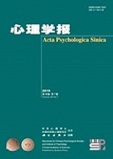|
|
A PRELIMINARY STUDY OF PROMOTING CREATIVE THOUGHT IN TECHNICAL INNOVATIONS
PENG JUI-HSIANG
1961, 5 (01):
15-21.
The difficult problems involved in the different stages of the creative process and the ways of their solutions adopted by innovators were analysed. It was noted that comprehension of relations between the Cutting tool of the lathe to be constructed and the object of production, classification of the problems into definite categories, utilization of sketchrepresentations and models, mental provocation through group dicussion etc. facilitated the process of problem solving. From analysis of the innovator's experiences, three principles relating to the creative process were suggested: Thinking must be associated with tentative activity; perceptual impressions associated with logical thinking and learning associated with actual innovation. In the course of development of the technical reform movement, the leaders and organizators of the movement may make use 'of his knowledge of these principles and the above mentioned characteristics of the creative process, so as to arrange more favorable conditions for the promotion and development of creative thought of innovators.
Related Articles |
Metrics
|




